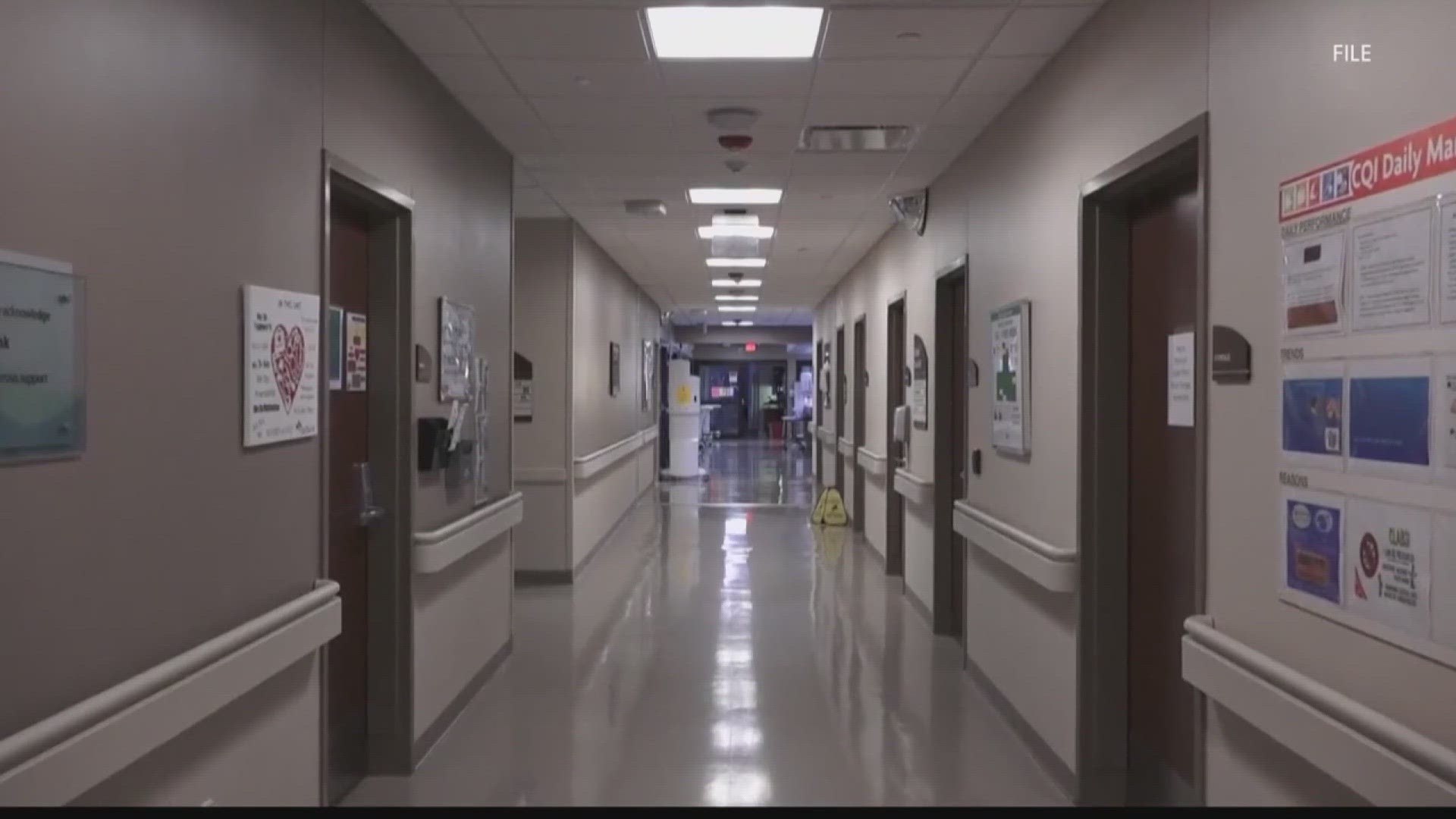JEFFERSON CITY, Mo. — It happens in a split second … patients becoming violent against the very people trying to help them. It happened to retired paramedic Kayla McMahan.
Nearly two years after a brutal attack at an emergency room, she still deals with PTSD.
"I had a stab wound right back here. Right behind my ear that I was lucky you didn't go into my brain," said McMahan.
A woman came into SSM Health DePaul Hospital with a knife. She stabbed a nurse in her head and neck. McMahan rushed to help her coworker, getting hurt herself. She later learned the attacker got past the security desk because no one was there.
McMahan said she was so traumatized by the incident that she left the industry.
Missouri State Rep. Justin Hicks (R-108th District) said "it was jaw-dropping" when he first heard about he issue of violence against health care workers.
On Jan. 25, Hicks filed legislation that's the first of its kind in the state.
"It gives the individual health care worker more power instead of the hospitals by itself," he said.
House Bill 2556 would prevent hospitals from requiring employees to restrain patients if they fear for their own safety.
"It could be life or death," said Hicks.
Missouri Senator Nick Schroer just filed the same statewide health care bill to prevent violence against health care workers in the state senate. Lawmakers say filing bills in both chambers could make it more likely a bill will pass.
We reached out to our area's largest hospital systems for reaction to the newly proposed legislation. Jacqueline Ferman-Grothe, a spokesperson with BJC Healthcare, told us: “Our team is reviewing the newly-filed legislation. What we can say emphatically at this time is the safety of our patients, families and staff is our top priority; physical or verbal aggression against caregivers is not acceptable.”
Many health care workers told the I-Team the newly filed legislation could mean a new level of protection.
Missouri does not have a state plan with the Occupational Safety and Health Administration, a government agency that enforces safe working conditions. It's why the nation's largest association of registered nurses, National Nurses United, said improved federal legislation is the answer to heighten standards within the industry overall, with better staffing for example to more effectively respond to violent patients.
A recent survey by the association shows more than half of hospital nurses have seen an increase in workplace violence.
The health care and social service industries experience the highest rates of injuries caused by workplace violence, according to data from the Bureau of Labor Statistics.
Hicks said his bill is a step in the right direction.
"We have to make sure that we're protecting our frontline workers," he said.
Hicks said he believes more money could go into hiring security.
"I think it's fantastic," McMahan said.
She said she believes more security staff would have prevented her attack.
"This bill says we can safely step back and say, 'Hey, we're not comfortable, we're not going to take care of this patient that's trying to hurt us and or make our situation unsafe,'" she said.
The president of the Missouri Hospital Association told the I-Team he has concerns about the legislation. He said it could actually make it harder for hospitals to care for patients, taking away tools like de-escalation techniques. In response, Rep. Hicks said he wants to figure out a solution, because health care workers should not go to work in fear.
Jon D. Doolittle with the Missouri Hospital Association provided the following statement regarding the bill:
“Any violence against a health care worker is unacceptable. Hospitals take these incidents very seriously and have systems in place to prevent and respond to them. Violence is a threat to our caregivers, patients and the healing environments of our organizations. Despite a myriad of approaches and dedicated resources, there is no easy solution to the scourge of physical and verbal assaults that occur in hospitals and other health care spaces. Our responses are threat based, and hospitals need all the tools available to identify and manage risks to reduce the threat of violence in our facilities. Elements of this legislation could harm hospitals’ ability to balance their responsibilities to provide care to patients and mitigate the risk to staff. However, as a community of hospitals, we are always are open to ideas and conversations about how to move toward a safer environment for staff, patients and the public."
Trevor Wolfe, a spokesperson for the Missouri Nurses Association, provided the following statement:
“This legislation in Missouri offers an out of the box solution to known flash points of violence. Most current legislative efforts on this subject, including two current federal bills, are focused on collecting data, and training healthcare workers on martial arts type tactics that we learn for a couple of hours every year and are required to attend during our off time. This is just more of the same. That has proven to fail thus far.”
To share a tip with the 5 On Your Side I-Team, use the form below or send us an email at tips@ksdk.com.
To watch 5 On Your Side broadcasts or reports 24/7, 5 On Your Side is always streaming on 5+. Download for free on Roku, Amazon Fire TV or the Apple TV App Store.

